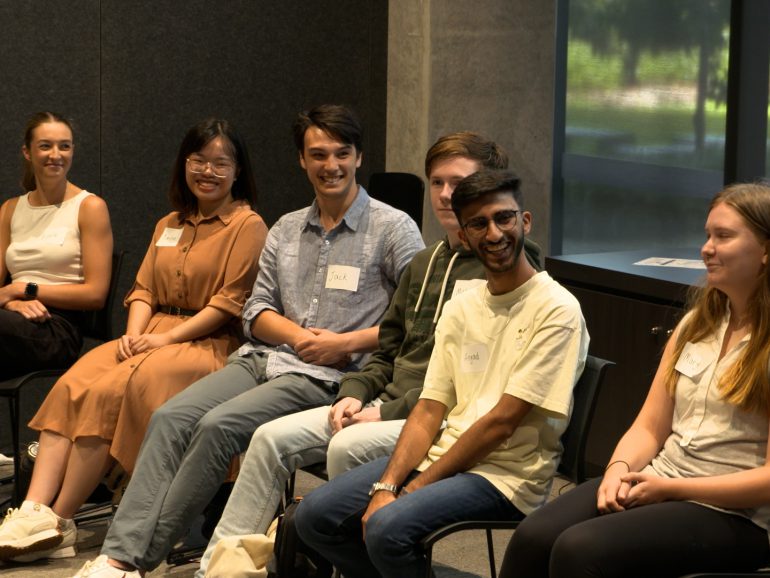On 1 March and 7 March 2023, we heard from two student panels on their thoughts about generative AI and what it means for their learning, assessment, and future. Over 450 staff and students joined us in person and online to hear voices that are urgently needed in the conversation around ChatGPT — that of our students. We asked students their thoughts on the following questions, and answered a range of audience-submitted questions.
- How have students reacted to ChatGPT and other generative AI in terms of their university study?
- How do you feel generative AI might help you to learn better at University?
- What are your worries about generative AI in your studies, and in your future?
- What can your teachers and the University do to help you grow your ethical and critical use of generative AI?
- What do you think generative AI means for your future?
There were so many pressing audience questions that we asked students to answer these after the panels. You can find their insightful responses here:
- Students answer your questions about generative AI – part 1: Assessments and their future, including questions such as how they’d approach an assignment using ChatGPT, whether students would be disadvantaged without generative AI, how they’d feel about teachers using ChatGPT to write feedback, and more.
- Students answer your questions about generative AI – part 2: Ethics, integrity, and the value of university, including questions such as how they’d like the University to guide their ethical use of AI, what they’d say to teachers around fears for academic integrity, how they feel about moving back to in-person exams, how they’d approach a group member who used generative AI for a group assignment, and more.
The recordings for both sessions are available below. Both panels are very worthwhile to listen to, as they covered slightly different perspectives.
Wednesday 1 March panel
(The panel itself starts around 11 minutes into the recording. The panel audio quality improves after about 14:30)
This panel focused on creative and meaningful ways that students are using ChatGPT, and discussed risks around access and over-reliance. They encouraged staff and the University to embrace ChatGPT as a tool for learning and to ensure that all students were aware of it. The students also discussed the importance of looking at what humans can do. There was talk of ChatGPT as a way to democratise access to knowledge, whilst recognising its limitations.
Tuesday 7 March panel
(The panel itself starts around 11:30 into the recording)
This panel focused on the limitations of ChatGPT but also how it can help learning by acting as a starting point and a research assistant. Disciplinary differences and personal preferences came across, and students recognised caution around trusting ChatGPT’s outputs. The students encouraged staff and the University to talk about its risks and help students build a foundational understanding of the tool, demystifying it. Open, honest conversation about ChatGPT was highlighted, as was the importance of the human element in creativity and assessments.
Tell me more!
- See how Sydney academics are using generative AI in class and in assessments this semester to help develop students’ AI literacy and their critical thinking skills
- Check out the staff-facing FAQ for generative AI at Sydney
- Browse the curated resources around generative AI and education at Sydney, and get inspired for how we can promote productive and ethical engagement with AI






6 Comments